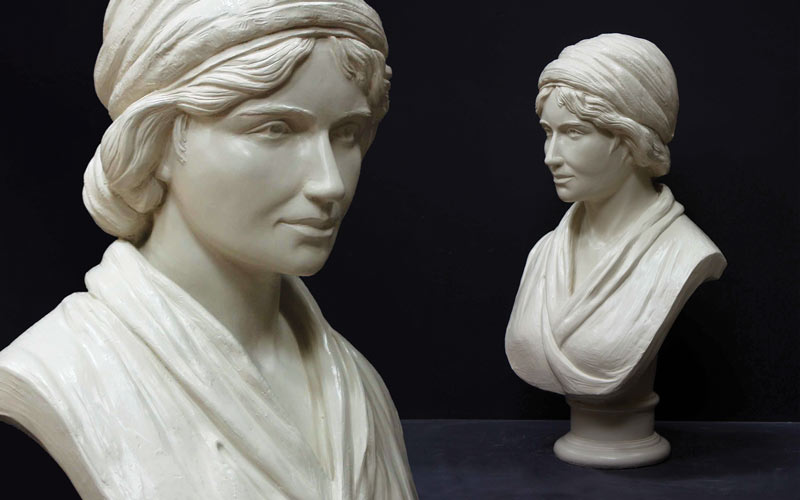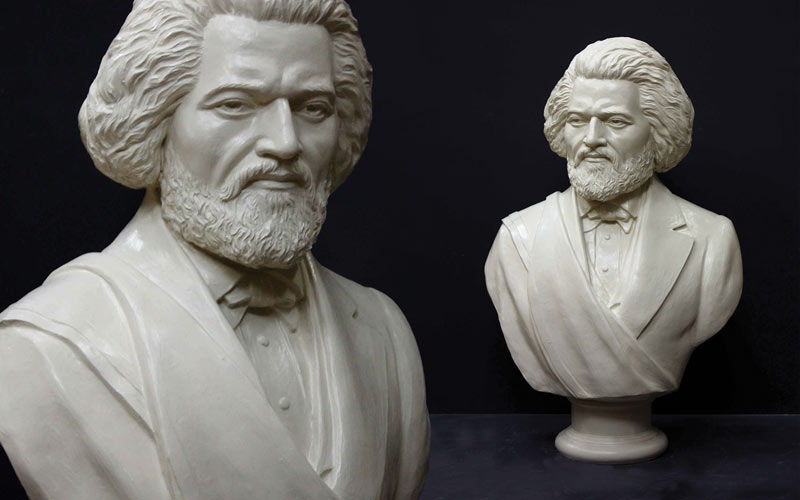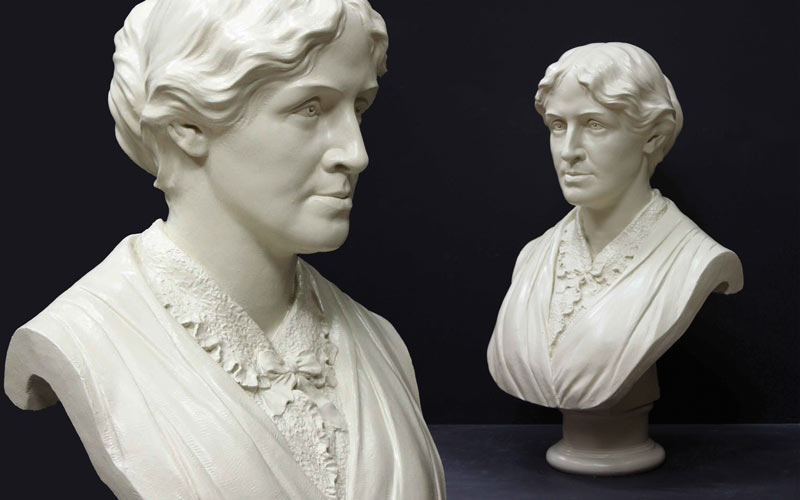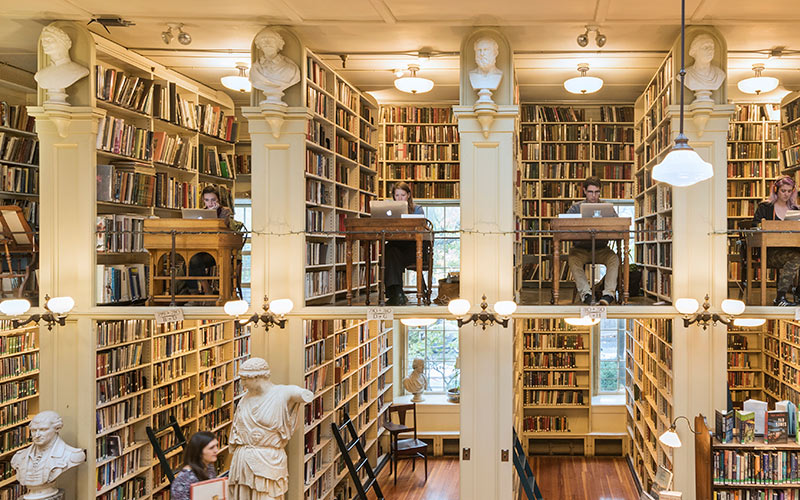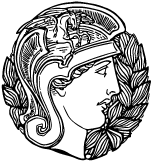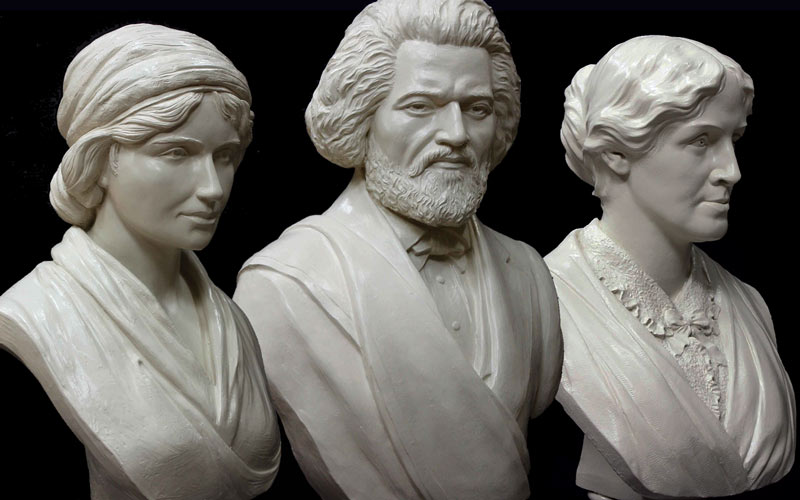
In 2018, a transformative gift allowed the Athenæum to initiate a project that would both elevate diverse voices in the library’s collection and have a lasting impact on its public space.
Looking down on the library’s Main Hall are 16 busts, circling the top of the mezzanine. These figures represent the humanistic tradition from its earliest beginnings to the mid-19th century and celebrate literature, philosophy, history, and politics. Like many of the art objects in the library’s collection, these busts were all gifts, donated to the library in the 19th century. They were not chosen or curated by the institution. Some, like Homer and Socrates, have earned their place in this pantheon over centuries, while the inclusion of others, such as Prescott, Webster, and Clay, spoke more to the moment at which they were given, rather than to their timeless relevance. All were white men.
The Hayden Special Collections Development Fund (established in 2018) allowed the institution, for the very first time, to make a significant investment in pieces of art that strengthened the collection and spoke to the Athenæum’s inclusive mission. With the resources now available through this fund, the Athenæum commissioned Skylight Studios in Woburn, MA, to craft three new busts to sit in the Main Hall.
The library developed specific criteria to help guide the selection process. The new figures must have an enduring legacy that resonates today and is consistent with the Athenæum’s mission of enriching the mind, inspiring the spirit, and elevating the public discourse. They must be known for their written contributions, and they must have some connection to the library, either in their lifetime or through representation in the collection. They also must diversify the bust collection, and specific consideration was given to gender and race. Based on this rubric, three figures emerged: Mary Wollstonecraft, Frederick Douglass, and Louisa May Alcott. Learn more about them below.
As these three figures join their fellows on the mezzanine, we also must acknowledge that this project is not complete. It will never be complete. The inclusion of these individuals represents an ongoing process to recognize those voices that have defended, celebrated, and furthered the humanistic tradition, often at great personal cost or peril. They were not perfect. No human being in history has been perfect. But if we appreciate their courage – that best part of the human spirit – and listen humbly to the past, we may improve ourselves, our present, and our future.


